The Favero Assioma Pro MX power pedals represent the Italian brand’s first off-road-specific blueprint and have been designed to provide gravel and mountain bike riders with accurate power data. The range spans single (MX-1) and dual-sided pedal options (MX-2) – we have the Favero Assioma Pro MX-2 pedals here. Having cut its teeth developing one of the lightest and most accurate power pedal systems for road cycling - the Assioma Duos - Favero Electronics knows a thing or two about pedal-based power meters and has naturally exercised its knowledge to cater for the burgeoning off-road sector.
Coming in at £599 / $759 / €750, they offer exceptional value for money undercutting its rivals by a fair margin. As for performance, the Favero Assioma Pro MX-2 does everything the brand claims: they’re consistently reliable and will perform day in, day out in even the worst conditions – the UK's cold and muddy winters included.
Favero Assioma Pro MX-2 pedals - Technical details
In terms of design, the pedals take on a traditional off-road-style blueprint pioneered by the Shimano SPD. As a result, they are compatible with Shimano SPD-style cleats and a pair of SH51 cleats are included in the box. Like Shimano SPD, the clip-in mechanism is dual-sided in functionality so the cleat will connect regardless of the orientation of the pedal.
Everything about the construction has been manufactured to last. The pedal body is well-designed and comprises aluminium for durability and weight reduction – it also gets a special treatment to help fend off water and corrosion. The structure also uses a clever non-protruding end-cap design to limit damage from rock and root strikes. The spindle spins on two needle roller bearings that allow for a dynamic load of 300kg per roller.
For Favero, it was paramount for the electronic components, strain gauges and the battery to be stored safely within the spindle. This was a tricky exercise given the limited real estate and the fact that the battery takes up most of the space but the company pulled it off. This feat is significant because should you damage the pedal in a crash or severe rock strike, the pedal body can be replaced for around £50.
Looking at weight, Favero has knocked things out of the park. At 191g per pedal (382g total weight) the Assioma Pro MX-2 pedals are one the lightest off-road-specific power pedals on the market, trumping the 218g Garmin Rally XC200 pedals but coming up heavier than the 172g SRM X-Power pedals weighed on our scale. Other attributes include an IP67 waterproof rating, an 11.2mm stack height and Q-factor of 54mm.
Battery life is pegged at 60 hours and can be topped up by charging an internal rechargeable lithium-ion battery. Having tested the pedals rigorously over the past few months, I've only needed to charge them once, and they're still going strong with about 75 per cent remaining. Compared to its rivals, the battery life is double that of the SRM X-Power pedals but half the capacity of the Garmin XC200 (the Garmins use a replaceable LiCB CR1/3N 3V battery, which can get costly over time).
Favero Assioma Pro MX-2 pedals - Installation
The first thing cyclists look for in a power meter is ease of use and that’s exactly what the Favero Assioma Pro MX-2s offer. The set-and-forget nature takes the guesswork out of the set-up. Installation of the pedals requires a 15mm spanner and a torque setting of between 20-40Nm. I always lightly grease the threads to ensure easy removal down the line and repeat the installation/removal process two or three times – this ensures the threads bed into the cranks for accurate power reporting.
Once the pedals are secured to your cranks, you'll need to activate them on the Favero Assioma app – this also unlocks the two-year warranty. Failure to do so will prevent them from showing up under the list of useable sensors on your bike computer and reporting any metrics. The app is pretty handy as it's responsible for firmware updates, zero-offset calibration, crank length setup and troubleshooting.
Another benefit of power pedals is the ability to swap them between bikes. It's worth noting that whenever you install the pedals or transfer them to another bike, you will need to set the correct crank length and perform a zero-offset calibration. This can be done using your bike computer or the Favero Assioma app.
Favero Assioma Pro MX-2 pedals - Performance and accuracy
From a basic functionality perspective, the Favero Assioma Pro MX-2 perform like any other pedal. The clip-in action is crisp and requires a deliberate push to engage and disengage the spring system. And that's what I like about these pedals – they don't feel any different to a regular pedal. I’ve used them in an array of conditions and temperatures, and have been impressed by the performance. The pedals clear mud quite effectively and have shrugged off numerous root and rock strikes; all without hindering the data harvesting.
Before getting into the power data, it's worth listing the capabilities of the Assioma Pro MX-2 pedals. Detailed stats such as power, cadence, power phase, torque efficiency, pedal smoothness, left/right power balance, rider position and platform-centre offset are all available to the user for analysis. The pedals also offer ANT+ and Bluetooth connectivity and automatic temperature compensation and calibration to improve data accuracy. A zero-offset should only be carried out when you remove and reinstall the pedals.
Looking at accuracy, I was never in doubt of the Assioma Pro MX-2 pedals. I've been using the Assioma Duo road pedals since 2019, and those have been consistent and true, and always tracked accurately with other power meters and smart trainers. While the pedals returned detailed and consistent power data out on the trail, the stop-start nature of off-road riding means the best way of measuring accuracy is in a controlled environment. For this, I used a Wahoo Kickr V6 smart trainer and Power2Max Ngeco power meter as benchmarks – this is my racing setup for elite eSports and Kickr V6 and Power2Max have always tracked very closely together.
Before conducting any recorded interval workouts, I make sure I warm up the smart trainer for at least 30 minutes and zero-offset my power meters for the most accurate results – regardless of the auto-calibration functionality of each unit. For most of my testing, I compared the Assioma Pro MX-2 with the Power2Max and, save for a couple of spikes from the Power2Max, the Favero Assioma Pro MX-2 tracked incredibly accurately and within the maximum claimed deviation of one per cent across the critical power band: five-second power up to 20-minute power. In fact, the 10- and 20-minute power metrics were spot on with the Power2Max Ngeco
I didn't focus much on cadence metrics but nothing was alarming when looking at the recorded figures. While the Wahoo Kickr V6 relies on clever software and algorithms to calculate cadence (and not an external sensor) all three units are within specification – in this case, an average of 67.7rpm (Kickr V6) versus 66.7rpm (Power2Max) and 66.9rpm (Assioma Pro MX-2), a minimal difference over a two-hour workout.
Favero Assioma Pro MX-2 pedals - Verdict
Accurate and reliable power meters are hard to find – especially for off-road use but Favero Electronics has killed it with the Assioma Pro MX-2 power pedals. They look good, add no significant weight to your bike and provide rock-solid performance regardless of the weather conditions and terrain. The best part about a pedal option is the ability to swap it between bikes with ease – something that will find favour with many riders.
In terms of rivals, the Favero Assioma Pro MX-2 pedals go head-to-head against the SRM X-Power and Garmin Rally XC200 pedals, both of which are good options but not without fault. I've currently got both options and have been testing them together with the Favero Assimoa Pro MX-2s. The SRM X-Power pedals, while accurate and robust, are frighteningly expensive at £1,289. They also require a thorough setup or accuracy is compromised not to mention can get clogged with mud which impacts clipping-in performance.
Having used the Garmin Rally XC200s for months now, the pedals are rock-solid options with reliable data harvesting. At £859.99, they are a little closer in price but the battery door located on the outermost edge of the pedals leaves them vulnerable to rock strikes. The reality is you can lose power functionality should you lose a battery while riding – something I experienced due to not tightening the battery door correctly.
In today’s cost of living crisis, a sub-£600 power meter is a rarity and Favero has ensured its Assioma Pro MX-2 pedals have hit all the markers. At present, there is nothing on the market as accurate, reliable, durable and easy to set up. The Favero Assioma Pro MX-2 pedals are the best off-road-specific power meter on the market.

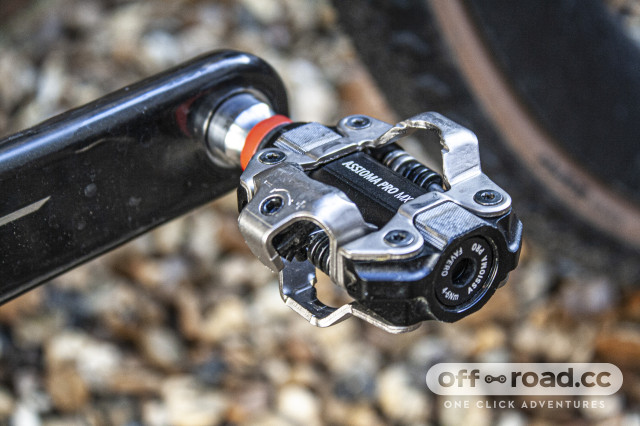

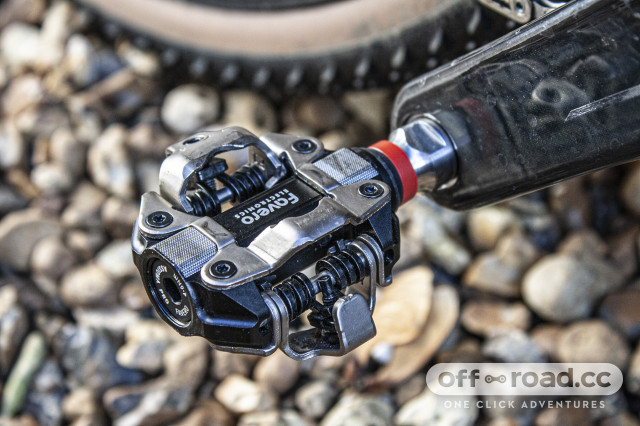
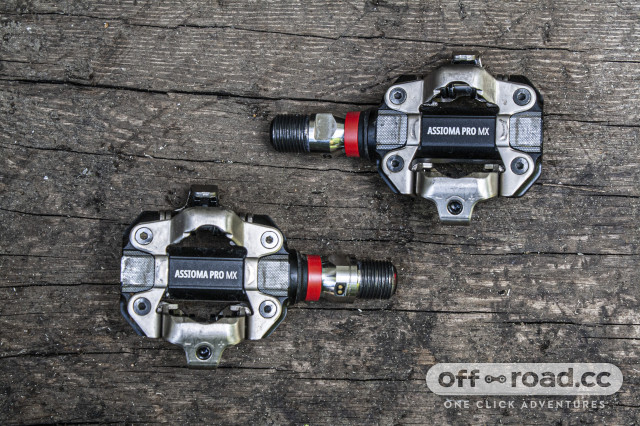








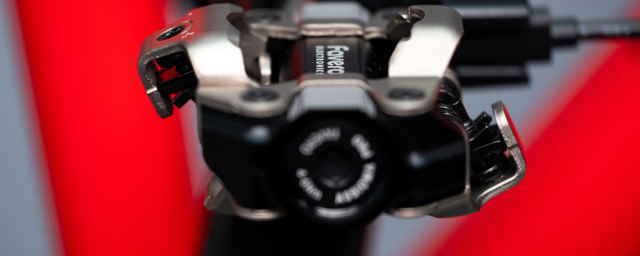

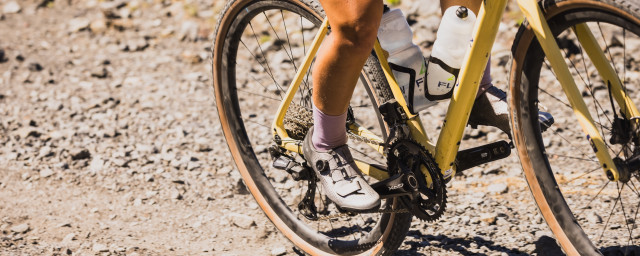
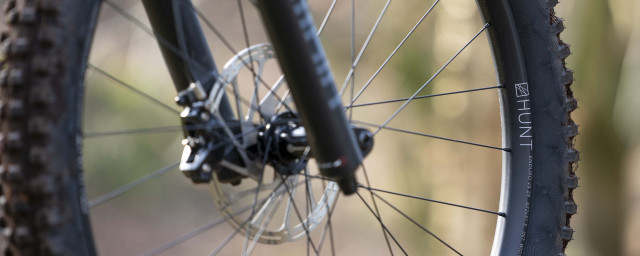

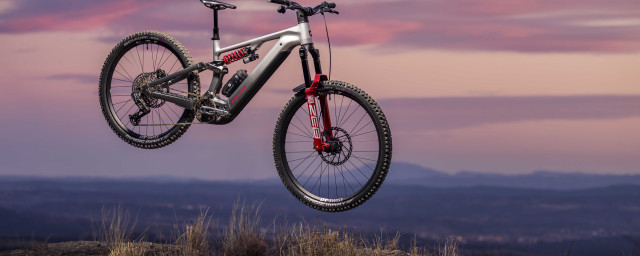
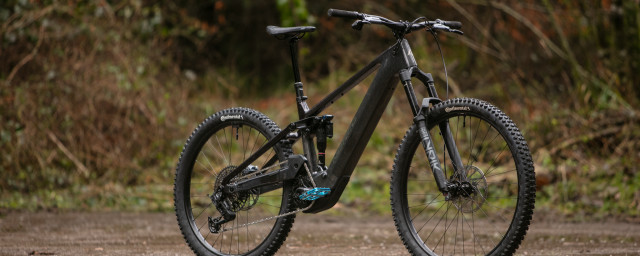
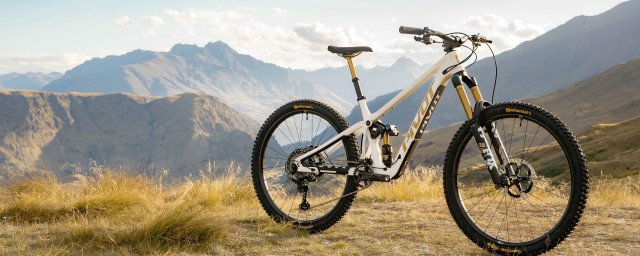
Add comment